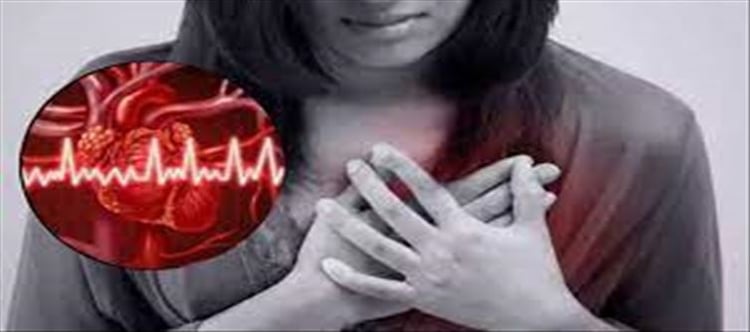
5 signs which tell about the weakness of your heart!!!

Diseases like heart attack and cardiac arrest are now happening at a young age, but it is not that the body does not give indications of these diseases earlier. You can identify the condition of your heart by some signs. Here you are going to tell about some signs which tell that your heart week is happening.

Knowing these signs, you can pay attention to your heart and avoid fatal diseases in time. Earlier the risk of heart attack used to be in 45 plus people but now this age has reduced to 30. So let's know in detail about those signs which tell about the weakness of your heart.
Chest pain and burning
If there is pain in your chest again and again, then it is a sign of weakness of the heart. Not only this, if you have heartburn every day, do not ignore it. This sign also tells that something is not going well with your heart.
Extreme blood pressure fluctuations
If your blood pressure remains high or low, then you are sure that the risk of heart problems will be high. If your bp fluctuates a lot, then be careful, it completely indicates the weakness and danger of your heart.
Shortness of breath without exertion
If you have difficulty in breathing or problems related to breathing, then it is not necessarily due to pollution or allergy or lung problem, but it is also the cause of weakness of the heart. Difficulty in breathing indicates that there is pressure on the heart and it is also possible that this is happening due to blockage of veins.
Suddenly drenched in sweat
If you suddenly start sweating profusely without any reason, then it means that there is something wrong in the body. If the weather is right or even in AC you get wet after grinding many times, then it can be a sign of heart problem.
Leg pain
It is often seen that people ignore the pain in their feet, but sometimes foot pain can also be a sign of weakness of the heart. This usually happens due to blocked veins due to high cholesterol. Therefore, if you feel cramping or tightness while walking, do not ignore it, it can be a sign of poor blood circulation or before a heart attack.




 click and follow Indiaherald WhatsApp channel
click and follow Indiaherald WhatsApp channel